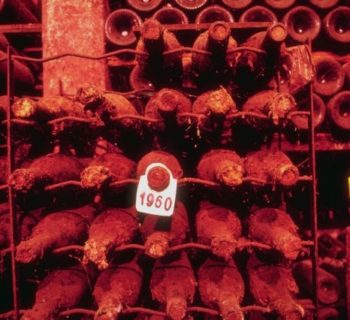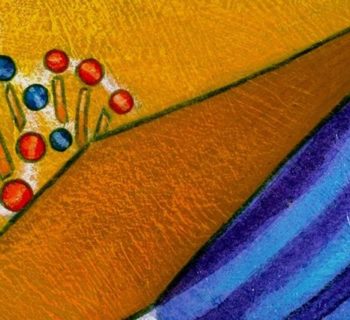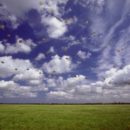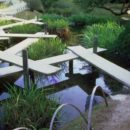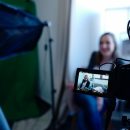During the whole October and the beginning of November I have been hearing German broadcasts and watching German TV documents that revisit the historical events thirty years ago. Altogether these revisit the turning points - die Wende - in the history of the German Democratic Republic (Deutsche Demokratische Republik - DDR) and in the whole German history. To my mind these documents bring very personal memories - during those weeks I was on a study visit in Germany. Yes, to be precise, I was on a study visit in the Federal Republic of Germany (Bundesrepublik Deutschland - BRD). So, I was not directly witnessing the dramatic events in the East but receiving the fresh news in the West. Also, during my one month's study visit (my first visit to Germany) I tried to concentrate on my meetings at the research institutes.
I was travelling through West Germany visiting institutes with focus on the field of vocational education and training (VET) and on innovations in working life. But by the time I got to my final station, the insular West-Berlin, the processes of change had gone that far that I was equally interested in what is happening in the East and what is coming out of all this. Strangely enough, I travelled back to Finland on the 6th and 7th of November, just before the Berlin wall was opened. This summer I found the hand-written diary in which I had written my notes on the meetings. There is very little about the the stunning historical events, but I do have my memories. So, with this blog post I want to share some of the memories.
Travelling in West-Germany - Signs of change are coming up
I arrived in Germany on the 4th of October and then started my Interrail 26+ tour in West-Germany, covering Bremen, Hamburg, Kassel, Göttingen, Dortmund, Düsseldorf, Bonn, Karlsruhe and Frankfurt am Main in three weeks. Looking back, it was a fully packed program, but I didn't regret. I had the chance to get acquainted with researchers of whom I knew by literature and got to know several others. Bremen was my first station and became the most important contact point in my future career, no question. I learned a lot of the role of ITB in specific field projects, in the Bremer Landesprogramm Arbeit und Technik (innovation programme for Work & Technology) and in particular of the guiding principle "Gestaltung" (social shaping of work and technology). This idea was prominently present in the scenario project "Berufsbilder 2000" and in the ITB contribution to the Bundestag Enquete-Kommission "Bildung 2000". And during most of that time I had the chance to enjoy the golden October weather.
The dramatic events started to reach me little by little. The celebrations of the 40th anniversary of DDR didn't leave strong memories, I was too exited about my trip. Also, I have only vague memories of the mass demonstrations in East German cities that marked a turning point. But then, the rush of refugees to the Wets-German embassies in Prague and Warsaw and the agreement to let the refugees to travel to West-Germany - that was big news. And shortly after that the first signs of the collapse of the old regime made headlines - the party leader and president Erich Honecker was pushed to step down. At that point the ruling party tried to keep the change in its control, but the clock had struck.
The week in München (Munich) - More signs of change
The next last week I spent in München (Munich, if you insist) at Institut für Sozialwissenschaftliche Forschung (ISF), of which also knew quite a lot via literature. Now I had a chance to inform myself of their different projects and of their participation in different expert commissions both concerning the innovation programmes in working life and in strengthening research in the field of VET. Also, thanks to the support from Burkart Lutz (the director of ISF and a key player in European VET research), I got appointments to visit Cedefop (the European Centre for the Development of Vocational Training) which at that time was located in Berlin.
During that week more news came fro East that indicated that something was changing - some representatives of the old guard were stepping down, but no radical change was (yet) to be seen. This atmosphere of uncertainties and anxieties was reflected in ISF by the fact that they had a visiting scholar from East-Berlin . With her the ISF colleagues had started a comparative project in the field of industrial sociology. Given the situation in the East, she had decided, not to return to DDR. During the week when I was there, she gave a public lecture on sociological research in DDR at the Volkshochschule (civic academy). The discussion on her lecture took a dramatic turn when she announced her decision publicly. (Later on she continued to work as a prominent sociologist in München and as a professor in Giessen as well as in many prominent expert commissions.)
The week in Berlin - just before the peak point of the change
The last week in Berlin was exiting both in terms of my study visit and being a nearby witness of changes on the other side of the border. From the perspective of VET research the most inspiring discussions I had in several departments of the Bundesinstitut für Berufsbildung (BiBB) and in Max-Planck-Institut für Bildungsforschung (in particular during my breakfast meetings with Wolfgang Lempert). From the perspective of European cooperation I was privileged to have talks in Cedefop with Deputy Director Enrique Retuerto and with Peter Grootings. (Little could I anticipate that some years later Retuerto would be my immediate boss in Cedefop and that I would be quasi the successor of Grootings when he chose to leave Cedefop.) From the perspective of innovations in working life the highlight was the meeting in Wissenschaftszentrum Berlin with professor Frieder Naschold.
During that week it became clear that a major change will take place in East Germany - the economy was collapsing, the ancien regime had lost the control and the new leaders were not in the position to regain the trust of people. The question was not, whether there will be a change, but what kind of change. The opinion leaders of the new opposition in the East expressed their hopes to bring their country to an alternative path - to develop their ideas of democracy and open society without introducing the aggressive competitive economy of western capitalism. The West-Berlin taxi-driver had another view: "After 40 years of economic mismanagement and no free elections the people in the East will vote for unification with the West." I had just left Germany when the wave of change reached its peak point and the wall was opened. Later on I came to see numerous documentary films of those days - it seems to me as if I had also been there.
---
I guess this is enough of my memories of zhe year 1989. In my next post I will have a look at October 1990. At that time I was again in Germany when the process of change - die Wende - was completed by the German unification.
More blogs to come ...



